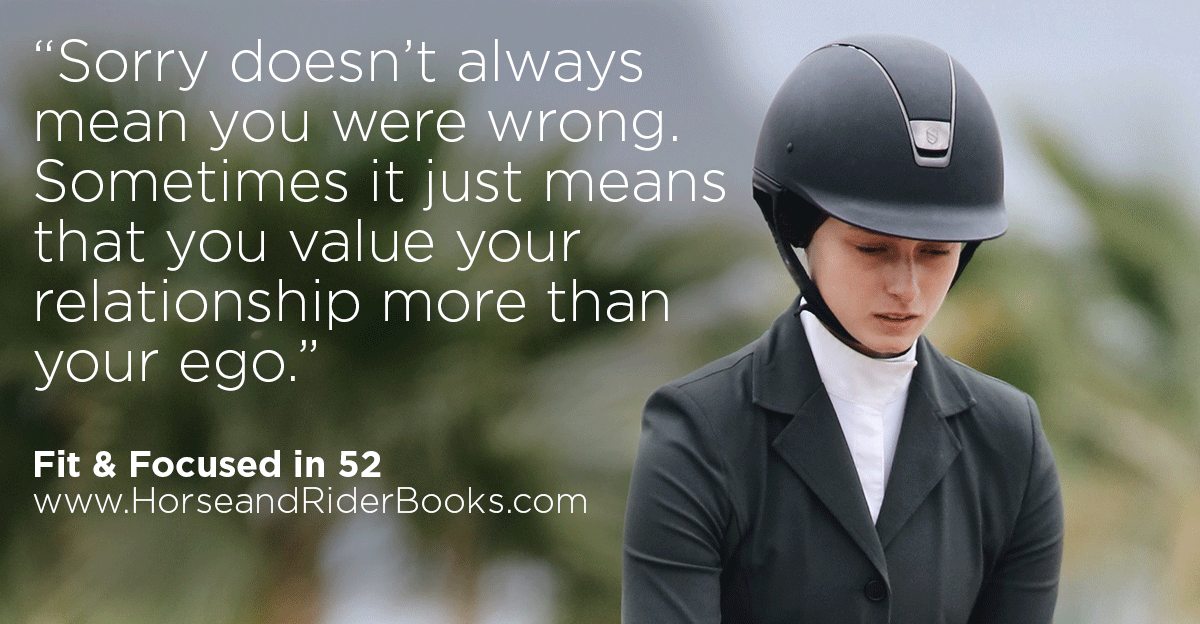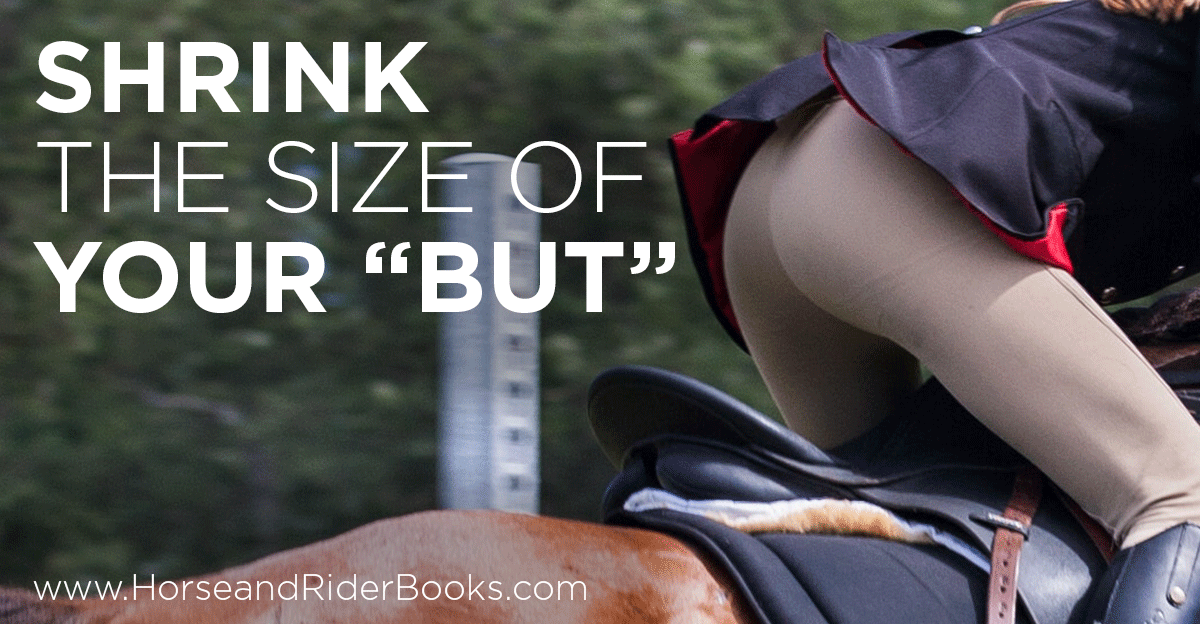
In January, it always feels like everyone is at the gym or on a cleanse or giving up sugar and alcohol in order to meet one resolution or another. For those of you interested in improving your inside as much as your outside, check out these recommendations for learning to tell the difference between a good mistake and a bad mistake from Coach Daniel Stewart’s book FIT & FOCUSED IN 52:
No one’s perfect (nope, not you either) so it’s just a matter of time before you’re going to mess up or throw your horse under the bus. Saying sorry to your horse, trainer, opponent, friend, or family member while riding—called an athletic apology—is a necessary stage in learning from mistakes and can be wonderfully empowering because it has an amazing way of shifting your focus away from blame and disappointment, to self-respect and confidence.
The difference between a good mistake and a bad mistake is that you own and learn from the good ones. Teach yourself to turn bad mistakes (the ones you feel bad about or try blaming away) into good ones by:
(1) saying you’re sorry,
(2) owning it, and
(3) letting yourself off the hook by committing to be better.
It might sound something like this:
(1) “I’m sorry.”
(2) “It was totally my fault.”
(3) “I promise to be on time in the future so it doesn’t happen again.”
 Owning your mistakes and vowing to be better as a result of them is one of the quickest ways to go from being a good rider to a great one. You should know, however, that not all athletic apologies are created equal. When making yours, always avoid using the word “but” because it has the nasty habit of trying to justify a mistake or erase blame. For this reason, the word but is called a verbal eraser. For example, “I’m sorry, but you really made me mad.”
Owning your mistakes and vowing to be better as a result of them is one of the quickest ways to go from being a good rider to a great one. You should know, however, that not all athletic apologies are created equal. When making yours, always avoid using the word “but” because it has the nasty habit of trying to justify a mistake or erase blame. For this reason, the word but is called a verbal eraser. For example, “I’m sorry, but you really made me mad.”
It’s not all about you!
Athletic apologies should also never contain “you” statements because they unintentionally attempt to shift the blame from you to someone else. When you apologize by saying something like, “I’m sorry you got mad,” you place the blame on that person instead of owning it yourself.
Here’s a little homework:
Think about a recent mistake you’ve made involving your horse, trainer, friend, or family member, and then make a three-part athletic apology for them. Remember, you’re not perfect, so go on and prove that you have the courage to admit it.

 FIT & FOCUSED IN 52 is available from the TSB online bookstore
FIT & FOCUSED IN 52 is available from the TSB online bookstore
CLICK HERE for more information or to order.
Trafalgar Square Books, the leading publisher of equestrian books and DVDs, is a small business based on a farm in rural Vermont.

